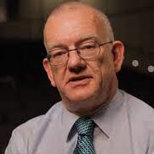The malign role of protectionist political economy
SUGGESTED

While economists generally agree on trade policy this is not the case among either the wider public or the political and policy making elite. Here support for various kinds of protectionism remains strong and departures from the ideal policy of free trade frequent and widespread. This raises important questions about what it is that shapes trade policies in reality. These are questions not so much of pure ‘scientific’ economic analysis as of political economy with its blending of theory, empirical study and normative argument.
Given this, there are points about the political economy of trade that are basic but bear reiteration. Historically the limiting cases of an economy where comparative advantage has no play or the opposite situation of one where there are no limits to its operation are rare or even non-existent. What we actually observe is oscillation between these poles with much movement towards one or the other in different times and places. The challenge is to discover why at one time and place arguments for some form of protectionism are successful in the sense of being realised as policy while at another time things work the other way, in the direction (most) economists would prefer. Moreover the forms of protectionism vary considerably. At some times the predominant form is the classic one of tariffs but at other times we find other kinds of practice such as the manipulation of money and exchange rates
In one sense, apart from the limiting case of an economy of self-sufficient households, there is always some free trade. To put it another way, comparative advantage is always realised to some degree. The first point at issue is that of what the geographical limits are within which this takes place. For economists this should ideally be the entire planet or some very large portion of it but there is a persistent tendency to think it should be a political unit of some kind. The second is that of which goods and services will be produced according to the signals generated by free trade and exchange and which will be governed by other kinds of institutions, in particular deliberate public policy. There is then the secondary question of what exact form this might take.
In exploring these questions authors have emphasised different influences. Many put the main stress on interest group politics while others emphasise the interests of the political class itself and the incentives it faces. Yet others explore the part played by ideology or mistaken ideas and beliefs or even ultimately the language and vocabulary used to talk about trade and the way this subtly shapes perceptions and understanding. Today we can see the revival of protectionism both in rhetoric and theory; given this, it is timely to think about the forms that it takes and the way a protectionist political economy has played a major and malign role in history and may do so again.
For more on the political economy of protectionism see the October 2011 issue of Economic Affairs.




